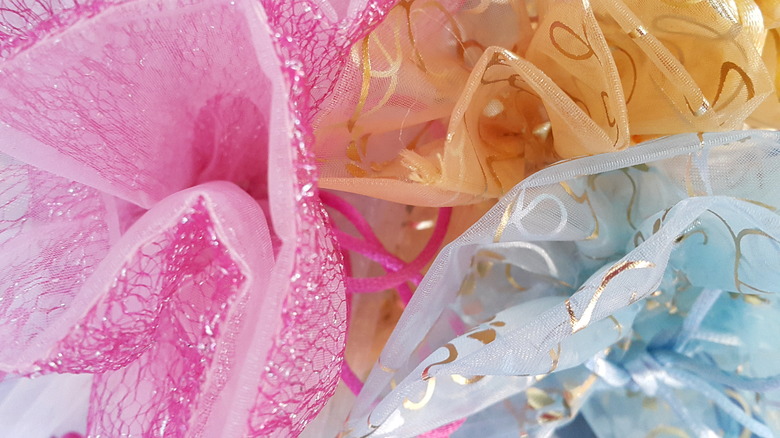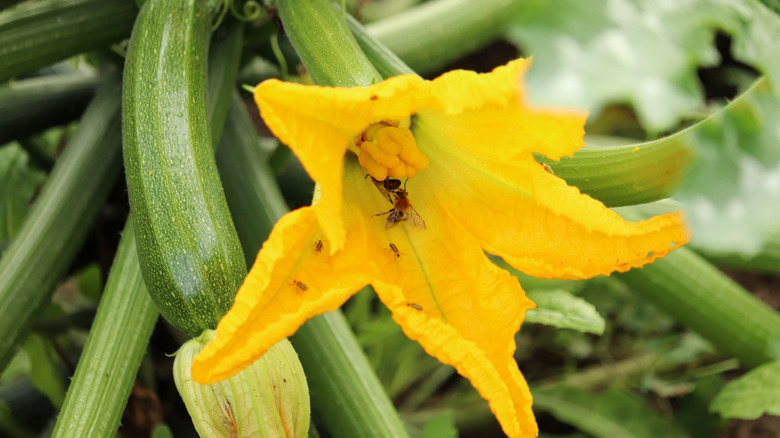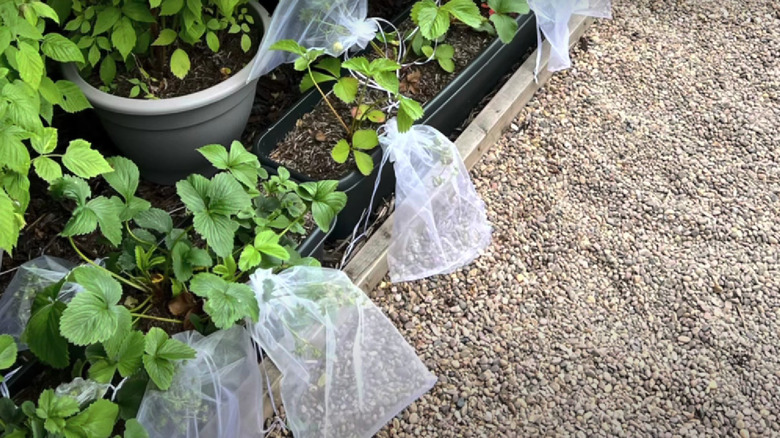The Clever Way You Could Reuse Mesh Jewelry Bags In Your Garden
When you buy cute jewelry or other small items, they often come in small drawstring mesh bags. These little bags are useful for many things, like wedding favors, handmade soaps, or small gifts, but once they have served their initial purpose, they are often tossed in the garbage. Since they are usually made from synthetic materials like nylon or polyester, they can take decades to decompose. Instead of throwing mesh jewelry bags in the trash, you can use them in the garden to protect fruits and vegetables from cross-pollination and prevent pests from eating your garden.
Mesh jewelry bags come in many sizes and colors. In the garden, only use options with a loose weave. If they are easy to see through, then sunlight and water can also get through while keeping pests and insects out. Although cotton and natural fiber bags may have some uses in the garden, they are not ideal for covering fruits and veggies because they will absorb water, which can lead to fungal and rot issues. They also generally have a tighter weave that doesn't allow access to sunlight and water.
Protect plants from cross-pollination
If you want to save your own seeds for next year, mesh bags can prevent pollen from being transported from the bloom of one species of plant to another. When this happens, it's called cross-pollination. It does not affect the fruit produced by the cross-pollinated flower, but it does change the characteristics of the plant that would be produced by the saved seeds. Even plants like tomatoes and peppers that are self-pollinating can be affected by cross-pollination by wind or insects. So, if you're growing a cherry tomato next to a slicing tomato and a bee carries the pollen from the bloom of the cherry to the slicing species, the seeds produced by the fruit of that flower will be a mix of both types.
Cross-pollination commonly occurs in plants that have separate male and female flowers, like those in the squash family. I like to call the results of these cross-pollinated seeds "frankensquash" because they can be quite unusual. If you're lucky, you get something edible, but very often the combo isn't tasty.
To protect from cross-pollination, and get seeds that produce fruit true to the parent plant, cover the bloom or bloom clusters of self-pollinating plants before they open with a mesh jewelry bag. For those that produce separate male and female flowers, try hand pollination as soon as it opens using the pollen of the same species. Then cover it immediately to keep pollinators out.
Prevent pest damage
There is nothing more frustrating to me than looking forward to enjoying the first juicy tomato from my summer garden only to discover that a naughty squirrel got to it instead. To keep squirrels, birds, and other garden pests from stealing your harvest, cover the fruits when they near maturity with mesh jewelry bags. These coverings will work on any fruit or vegetable that you know has consistent pest issues. Of course, the bags must be big enough to cover the fruit and close the drawstring around the stem. Tomatoes and small squash varieties are just a few favorites. Smaller fruits, like strawberries, can also be bundled in bags to keep birds away. Mesh jewelry bags are perfect to use on dwarf fruit trees that are great for smaller yards. Since these trees don't produce as many fruits as their full-sized counterparts, you can cover each apple or orange with a bag to protect your harvest.
A mesh fabric barrier is not a perfect solution to protect your garden against pests, but it does act as a deterrent. Not only do the bags confuse curious critters, but one bite of the mesh material should send them to the next yard. Sorry, neighbors.


